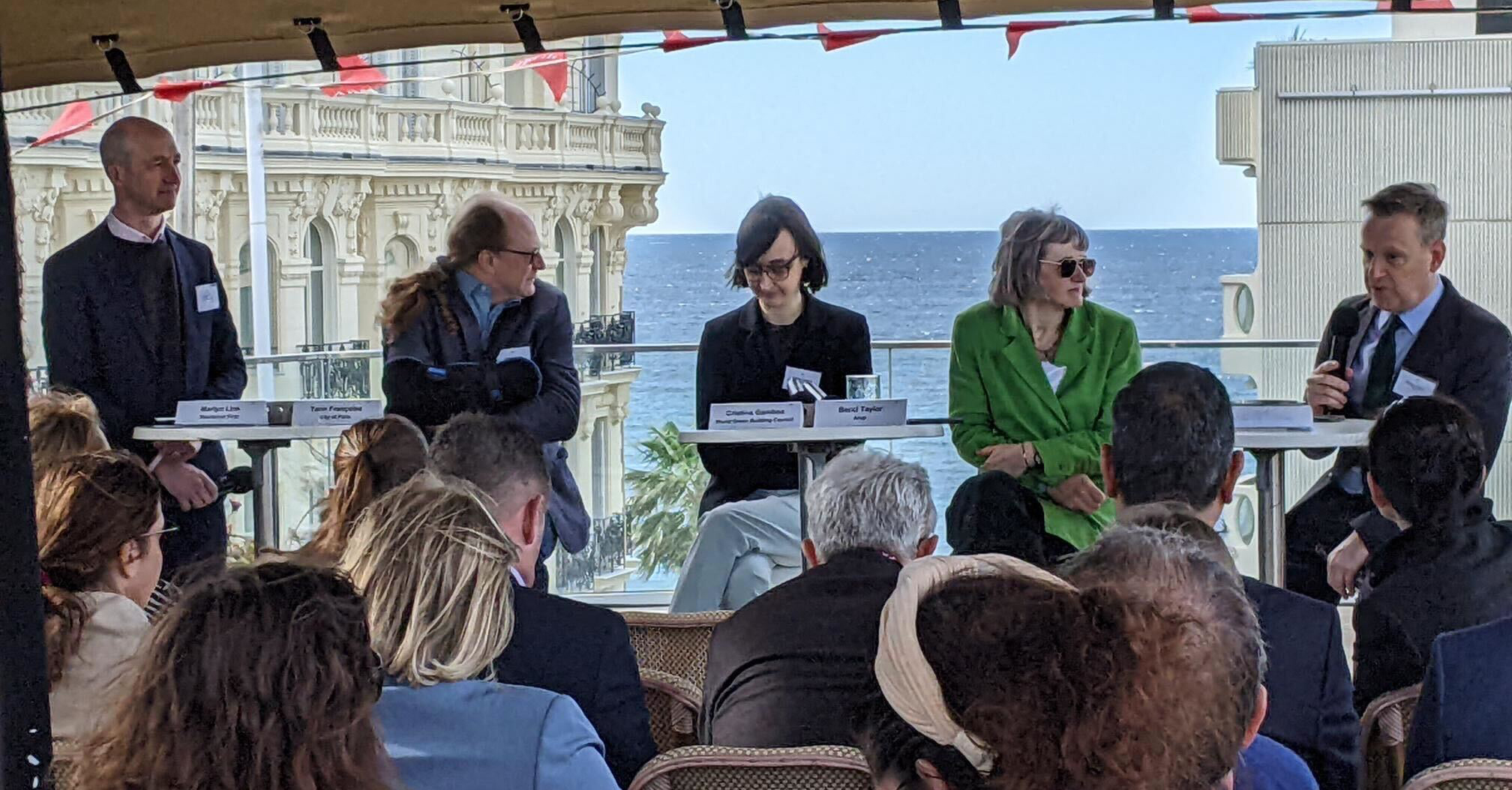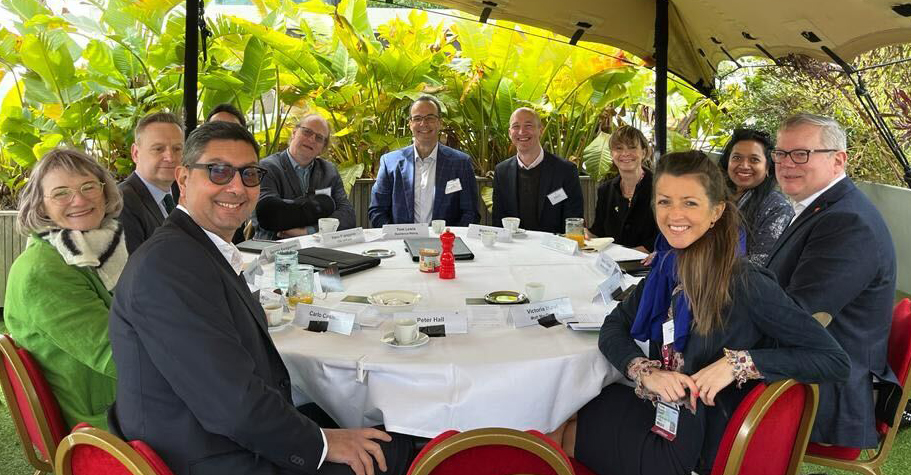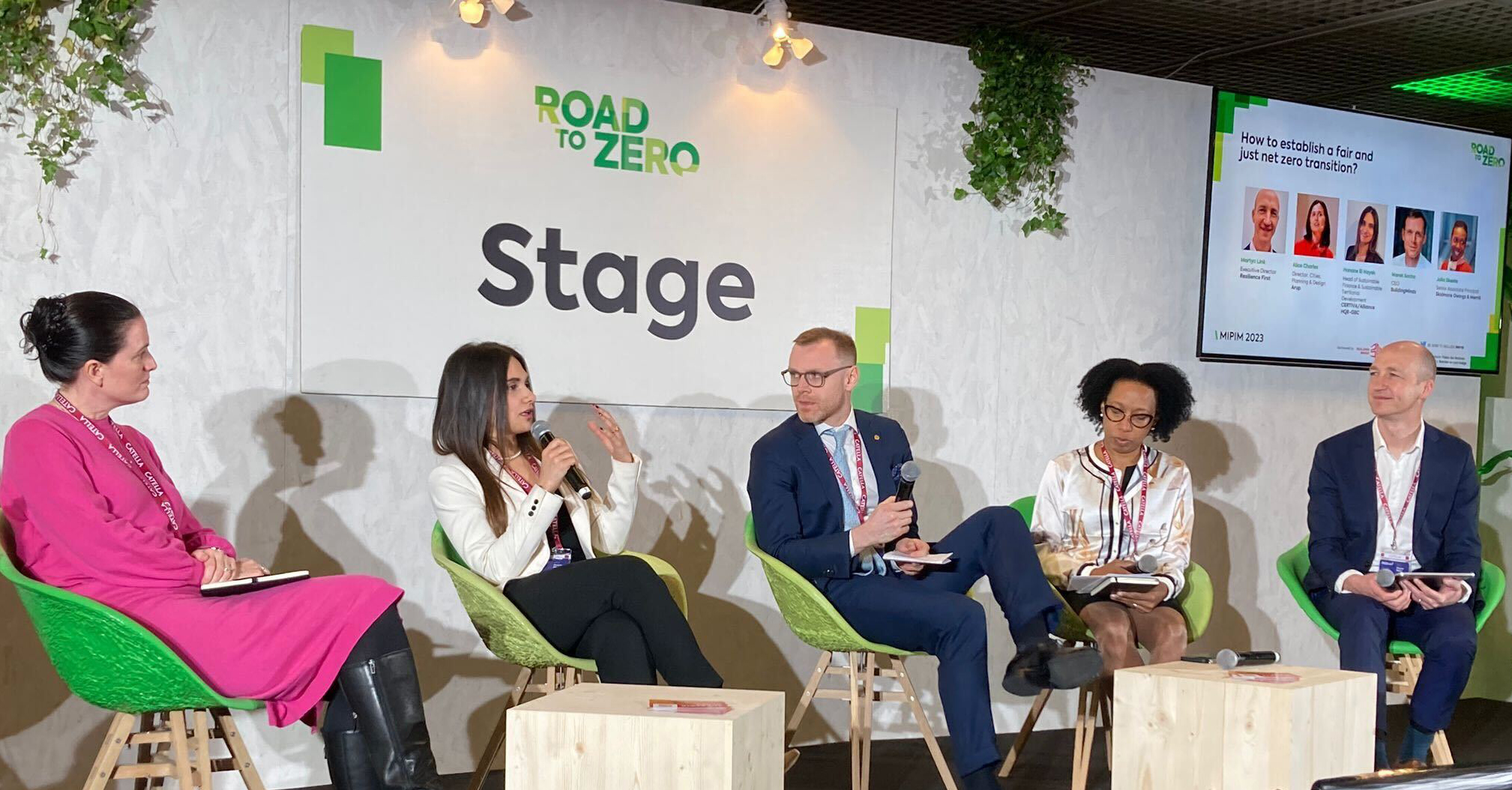Martyn Link, Executive Director, Resilience First
So very nearly…gone with the wind.
It was the south of France in Spring, what could possibly go wrong? We had a beautiful rooftop venue booked and a great speaker line up, little did we realise the winds of change blowing through MIPIM were actually going to be gale force. Resilience First was delighted to kick off our MIPIM programme with a breakfast panel discussion with Arup and guest speakers from the City of Paris and the World Green Building Council. In the beautiful surroundings, we had a great discussion around the important role of cities in driving the changes needed for reaching sustainable, resilient communities. The wind blew but could not dampen our enthusiasm and, in some ways, it symbolised the challenge of staying on track when your notes get blown away. People spoke from the heart and made the case for collaborative sharing of information, working together to avoid disjointed regulation and thinking long term.
KEY INSIGHTS:
- Importance of sharing data – whilst it’s important to share data in addressing climate adaptation, the context of its use and understanding may be different from one organisation or situation to another…so the principle is correct, but the practicality is not that simple – leaving aside GDPR and corporate intelligence issues.
- Need to align housing rules with reality.
- Role of planners is key and needs to expand.
- Global cities have a huge job to prepare for the future and therefore need to move away from siloed thinking and consider collaborations across transport, energy and buildings.
- Businesses need confidence in long term policies that go beyond electoral cycles in order to take action.
- There’s a need to engage entire value chains throughout the decarbonisation process.
- Strong need for city wide policies that are practical, effective and implementable.
- Buildings and cities should be designed not just for the next decade but for the next 100 years!

Later that same morning we had our inaugural meeting of the Engineering Leadership Group (ELG), bringing together the largest engineering firms to work together to solve the biggest challenges for society. This new initiative is vital in giving a strong voice to the role of the technical experts in advocating for a sustainable and resilient future. Representatives from across the industry spoke passionately about the need for engineers to tell their stories and take their place around the decision-making table. The shivers down my spine were no longer from the wind, but from the anticipation of the impact this group of companies could make if they can speak with a common voice on the biggest issues of our day.
KEY INSIGHTS:
- The ELG is a previously missing, long-awaited ‘coming-together’ of the industry.
- The challenge of infrastructure resilience and sustainability is too big for any single firm, or even country, to address in isolation.
- Engineers are not necessarily good storytellers so engineering-inclusive organisations may need “translators” to better influence policy.
- Engineering-inclusive organisations are in a unique position to contribute technical knowledge and evidence about infrastructure, but also about the deliverability of large projects.

At MIPIM’s Road to Zero stage the following day I had the opportunity to moderate a diverse panel on how to deliver a just and fair transition on the road to net zero for the real estate industry. Speakers from across a range of organisations spoke about how their work is leading the way in thinking and acting in a way that engages with communities and builds in benefits to locals from urban development. The range of voices was inspiring, and many delegates mentioned to me how impactful the Road to Zero programme had been in its first year. We do not need to look far to find many challenges in decarbonising our cities and reducing inequality, but the tailwinds are also there for those people and organisations ready to make a difference.

We will be continuing these crucial conversations over the year, but in particular during our upcoming event Ghost Towns No More: Rethinking Urban Resilience on 23 May, kindly hosted by Jacobs. Join us to learn about opportunities for your organisation to be at the heart of a greener, healthier urban future, find more out here.



